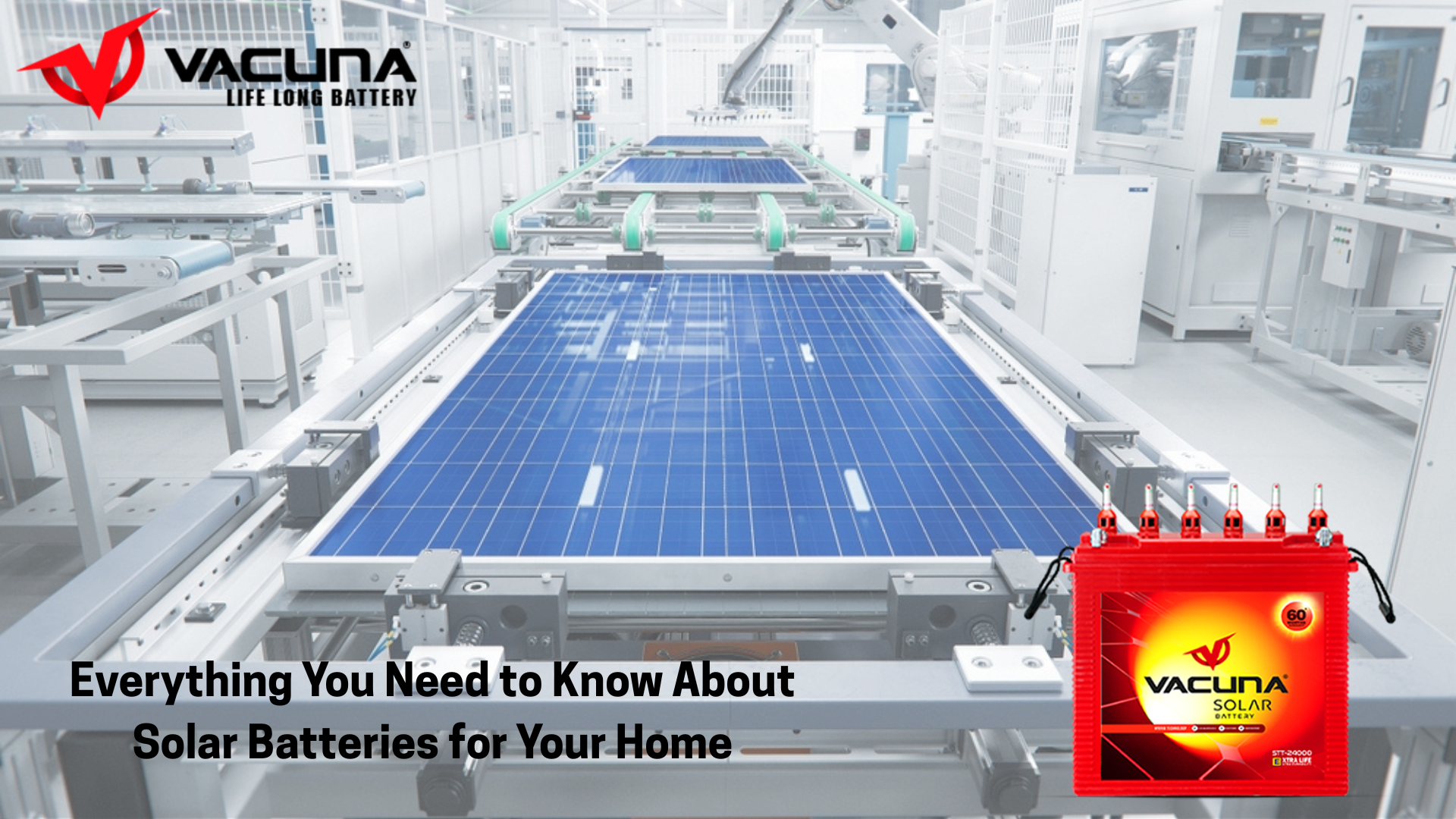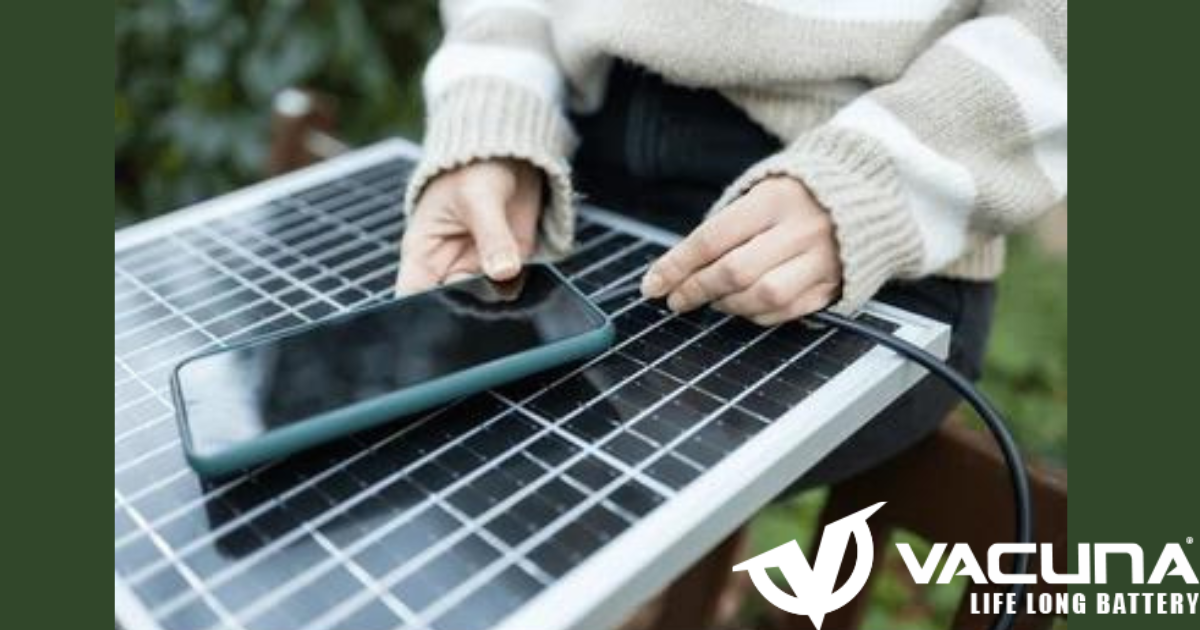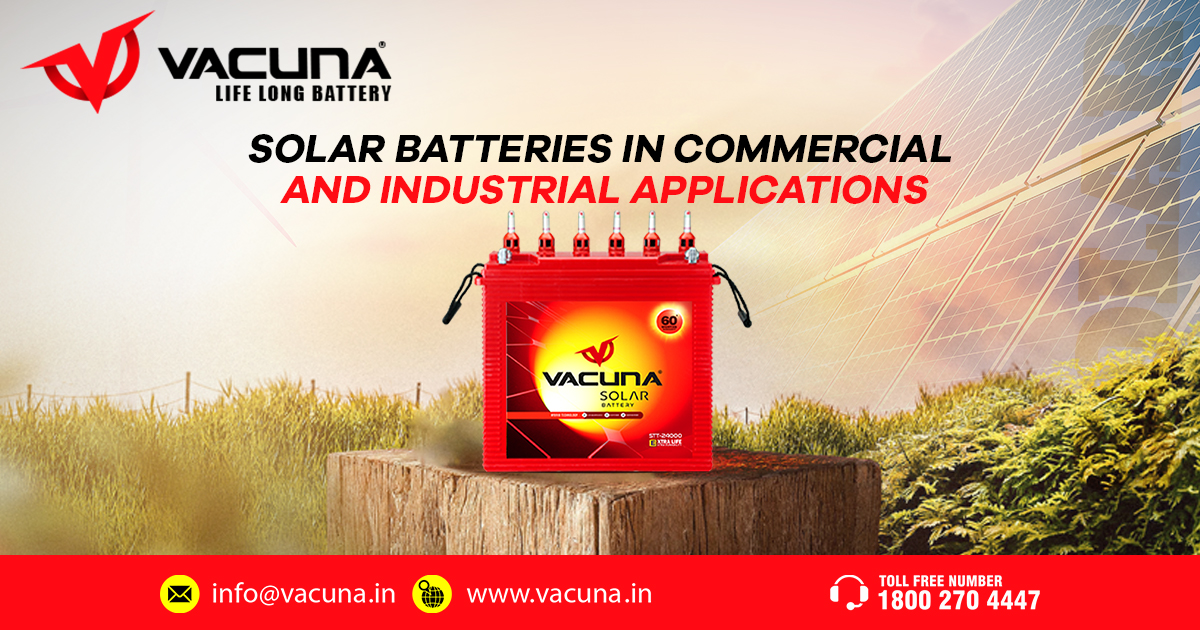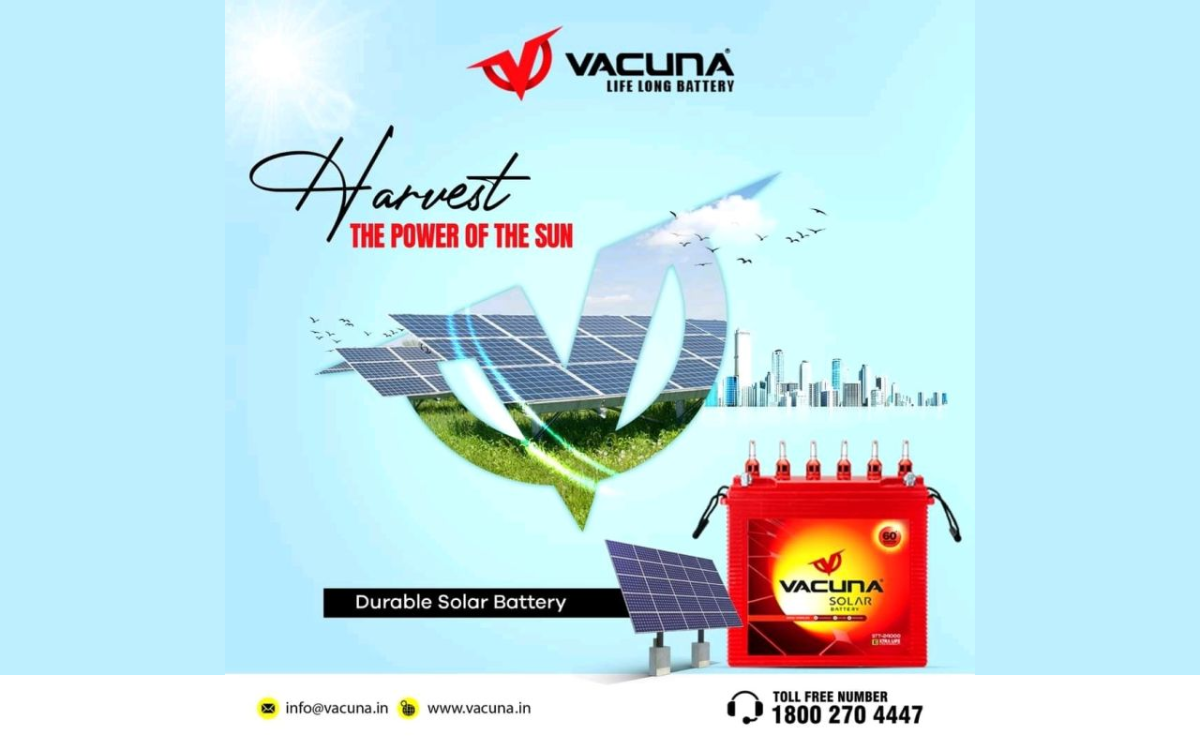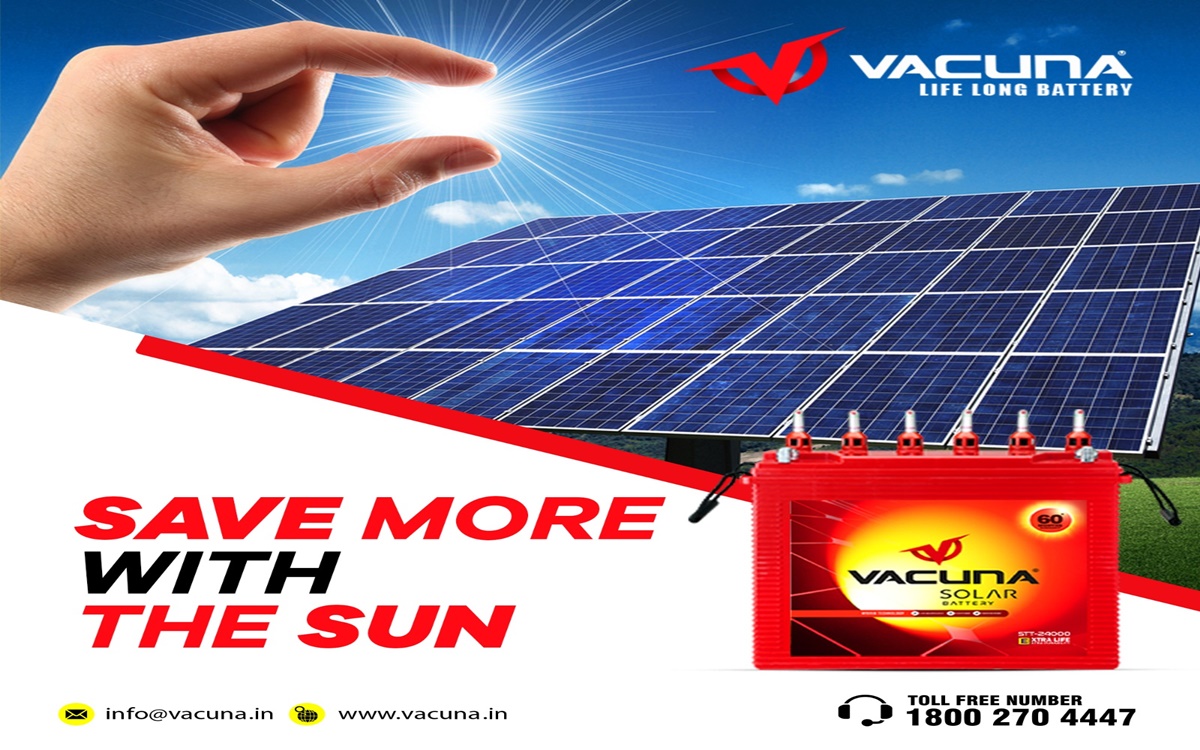As the demand for sustainable and reliable energy increases, solar batteries are becoming an essential component for homeowners seeking energy independence. In the UAE, where the sun shines year-round, harnessing solar power is an ideal solution. However, solar energy is only available during daylight hours, which makes solar batteries the perfect addition to any solar panel system. As a leading solar battery manufacturer in UAE, Vacuna offers high-quality solar batteries that store excess energy for use when the sun isn’t shining. This article explores why solar batteries are crucial for your home and how they can provide consistent power.
Why Solar Batteries Are Essential for Your Home
The UAE enjoys abundant sunlight throughout the year, making it an ideal location for solar energy systems. However, solar power generation is limited to daylight hours. This is where solar batteries come in. These batteries store excess energy generated by your solar panels during the day and provide a reliable power source when the sun goes down. This ensures that your home always has access to energy, even when the grid is down or during the night.
By incorporating solar batteries, you can significantly reduce your dependency on the national power grid and ensure that your home stays powered no matter the time of day.
How Do Solar Batteries Work?
Solar batteries work by storing excess energy produced by your solar panels during the day. When the sun is shining, your solar panels convert sunlight into electricity, and any extra energy that isn’t immediately consumed by your home is stored in the solar battery. This stored energy is then available for use during nighttime or on cloudy days.
A typical solar battery system includes solar panels, a battery inverter, and the solar battery. The battery inverter converts the stored DC energy from the solar panels into AC power that your home can use. This allows for a seamless energy flow, ensuring that your home always has access to power when you need it.
Benefits of Solar Batteries for Homeowners in the UAE
- Energy Independence:
One of the most significant advantages of solar batteries is energy independence. By storing excess energy for later use, you can significantly reduce your reliance on the national grid. In the UAE, where power outages can occur, solar batteries offer a reliable backup solution to keep your home running smoothly. - Cost Savings:
Although the initial investment in a solar battery may be high, the long-term savings are substantial. By using stored energy at night or during power outages, you reduce the need to buy electricity from the grid. This can help lower your monthly energy bills and save you money over time. - Reliable Power Supply:
Solar batteries ensure that your home has a continuous power supply, even during grid failures or power cuts. This is particularly important in areas where power interruptions are frequent. With a solar battery, you can rest assured that your home will remain powered regardless of external factors.
Why Choose Vacuna as Your Solar Battery Manufacturer in UAE?
As a trusted solar battery manufacturer in UAE, Vacuna is committed to providing high-quality, durable, and efficient solar batteries that meet the energy needs of modern homes. Vacuna’s batteries are built to withstand the extreme heat and environmental conditions of the UAE, ensuring long-lasting performance. Whether you’re looking to reduce energy costs or achieve energy independence, Vacuna offers the perfect solar battery solution for your needs.
Conclusion
Incorporating a solar battery into your home offers multiple benefits, from reducing your electricity bills to ensuring a reliable power supply. With Vacuna, a leading solar battery manufacturer in UAE, you can trust that you’re investing in a sustainable and efficient solution that will provide reliable energy for years to come. As the UAE continues to move toward renewable energy, solar batteries will play an essential role in helping homeowners achieve energy independence and contribute to a greener future.
